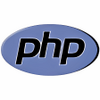Free and Extremely Flexible Programming Language
Free and Extremely Flexible Programming Language
Pros
- Highly versatile and general-purpose programming language
- Welcoming to both beginners and experienced developers
- Extensive collection of modules and comprehensive documentation
- Open-source and free to use
- Excellent text manipulation capabilities and regex integration
Cons
- May encourage diverse coding styles, affecting maintainability
- Perceived as less modern compared to newer programming languages
- Complexity can grow with advanced Perl features
An Extensive Review of Perl Programming Language
Perl stands as a distinguished and flexible scripting language that has made an indelible mark in the world of programming. With a rich history that spans three decades, Perl stays at the forefront for developers looking for an adaptable and mature language. The release of Perl 5 adds a plethora of enhancements designed for improved functionality and accessibility, catering to both seasoned programmers and those new to the craft. With its open-source status, Perl presents developers with a free, feature-rich toolkit without the burden of cost.
Main Features and Functionality
At its core, Perl is a high-level, general-purpose language rooted in text manipulation. Its versatility extends to a variety of applications such as website development, mobile app creation, GUI interfaces, and network programming. What sets Perl apart is the language’s focus on getting things done – it doesn’t enforce any particular programming paradigm, making it a practical choice for a wide array of tasks.
The scripting structure in Perl is laudable for its simplicity and readability, which invariably attracts beginners to the platform. Yet, the unassuming facade conceals the language’s capability to handle sophisticated programming needs. This straightforward approach not only benefits new learners but is also advantageous in reducing memory overhead in elaborate projects.
One of the key strengths of Perl is the vast collection of resources it offers. The language's documentation is comprehensive and complete with tutorials, FAQs, and user guides, facilitating an easier learning curve for newcomers. Perl's community support, with countless libraries and modules readily available through the Comprehensive Perl Archive Network (CPAN), is a testament to its long-standing presence and collaborative nature.
Advanced Usability
Perl’s syntax and advanced features draw strong influences from the C language and shell scripting, making it an intuitive extension for those familiar with these programming frameworks. The language's compatibility with regular expressions and its context-sensitive syntax empower users to write concise and powerful scripts.
Perl also proves to be highly adaptable, enabling developers to write scripts for cross-platform usage. The interpreted nature of the language means that Perl scripts can run on a variety of operating systems with minimal modifications, a boon for those working in heterogeneous computing environments.
Integration and Development
Perl interacts seamlessly with databases, web services, and external libraries, making it a scalable choice for both small-scale utilities and large web applications. The language’s open nature facilitates easy integration with other technologies and its rich set of modules extends its capabilities to nearly any conceivable programming challenge one might encounter.
Despite the advantages, it's important to note that Perl's architecture is such that it allows for more than one way to accomplish a task. This flexibility can be a double-edged sword, contributing to diverse coding styles that could lead to less maintainable code if not disciplined.
Conclusion
Perl remains a robust and dynamic choice for programmers who value a mature, broadly capable language. Its extensive module library, combined with ongoing community contributions, ensures that Perl is a language that can evolve with the user's needs - a critical aspect in the ever-changing landscape of technology.
Pros
- Highly versatile and general-purpose programming language
- Welcoming to both beginners and experienced developers
- Extensive collection of modules and comprehensive documentation
- Open-source and free to use
- Excellent text manipulation capabilities and regex integration
Cons
- May encourage diverse coding styles, affecting maintainability
- Perceived as less modern compared to newer programming languages
- Complexity can grow with advanced Perl features




